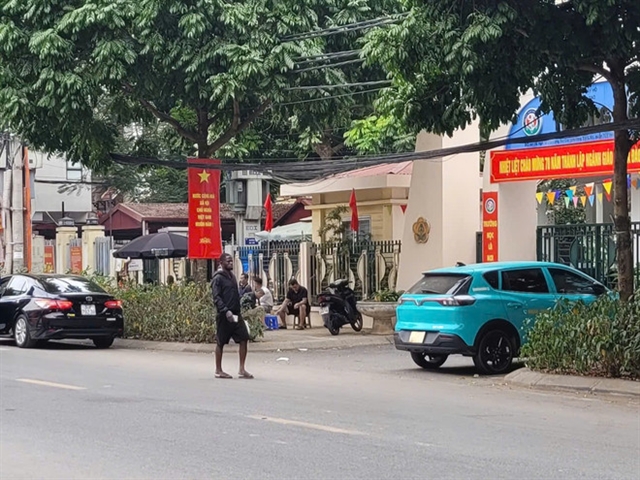African migrants in Hà Nội are facing significant challenges as they struggle to secure employment despite coming to Vietnam with hopes of better opportunities.
Many Africans come to Việt Nam with the aim of traveling, working, or starting a new life, believing the country offers better living and working conditions than their home countries. Eleagu, a 30-year-old African migrant, embodies this dream. Every morning, he roams the streets of Tứ Liên Ward in Hà Nội’s Tây Hồ District, hoping to find work. However, like many of his peers, Eleagu often returns home empty-handed. Despite his willingness to take any job—ranging from dishwashing to carrying heavy loads—consistent and reliable work is hard to come by.
One local construction worker, C., shared his experience with two African men he hired for a job moving concrete panels. C. explained that hiring locals would have cost significantly more, highlighting the affordability of African workers despite their struggles.
However, the reality for many African migrants is far from ideal. Eleagu’s journey exemplifies the hardships faced by many. He paid $3,000 to a Nigerian agency for a visa with the promise of being able to convert it into a work visa, but the promise never materialized. His tourist visa expired, and the only job he managed to secure was for minimal pay in local peach and kumquat gardens following a tropical storm.
Chris, another African migrant, had an even worse experience. He spent $10,000 on a visa scam that led him to Việt Nam instead of Japan as promised. After working in a warehouse for three months in Hồ Chí Minh City, Chris’s visa expired, and his contract ended. Now, he has been unable to find stable work in Hà Nội.
Similarly, Fodalc, a Nigerian migrant, was promised assistance in obtaining a work permit after paying a $3,000 deposit to an agent. However, his journey to Cambodia in search of a work visa turned out to be a scam, and he returned to Việt Nam with the same tourist visa, having lost all his money.
The living conditions for these migrant workers are equally difficult. Most share small rooms in Tứ Liên Ward, often accommodating up to five people per room, which costs between VNĐ1.5-2 million ($60-$80) a month—cheaper than the average price students in Hà Nội pay for accommodation. However, due to their tourist visas, these migrants are not eligible for work permits, leaving their income unstable and dependent on occasional odd jobs.
Despite their struggles, local residents have shown kindness. Some shopkeepers, like Trịnh Văn Hiến, a butcher, and Hương Lê, a grocery store owner, offer free food or discounts to the migrant workers, who often buy only small quantities due to their limited funds. In addition, local authorities in Tây Hồ District have stepped in to offer support to migrants like Manfred, a Nigerian who was scammed. Manfred is receiving legal guidance and living rent-free while local authorities work with African embassies to help migrants return home.
As they continue to face challenges, these migrant workers remain hopeful that their situation will improve, allowing them to rebuild their lives and help their families back home.



